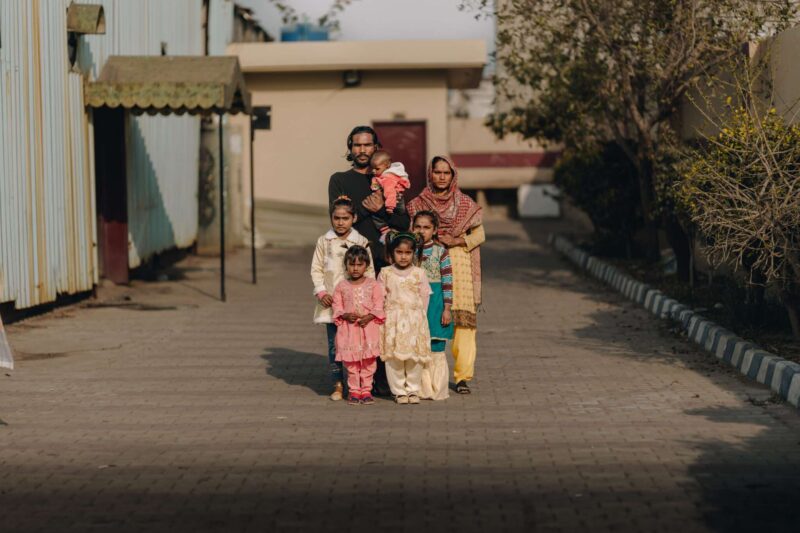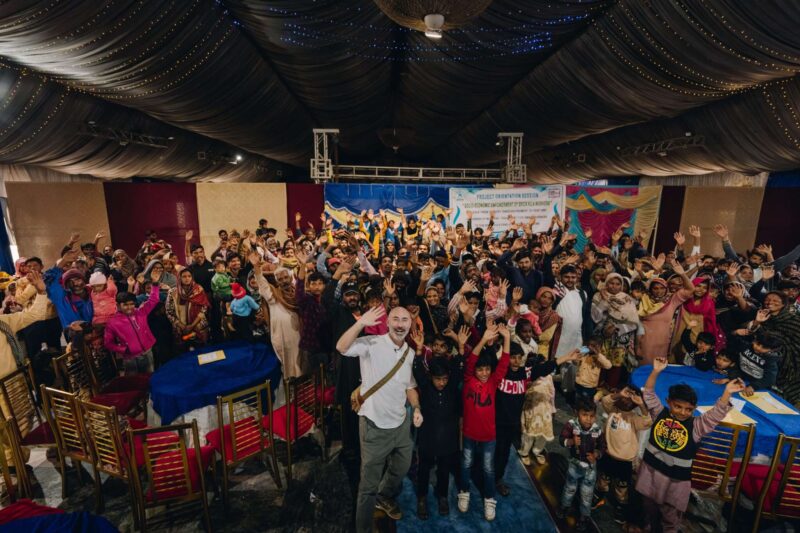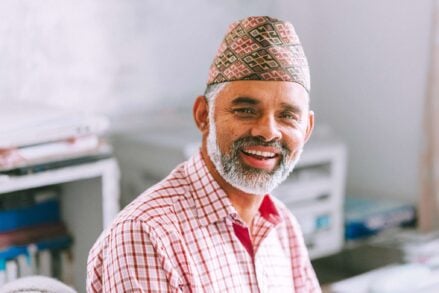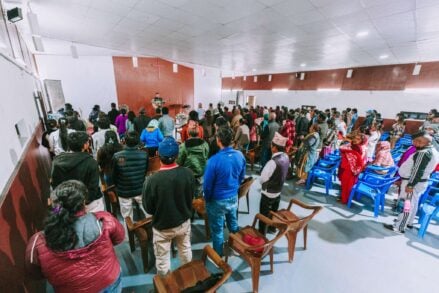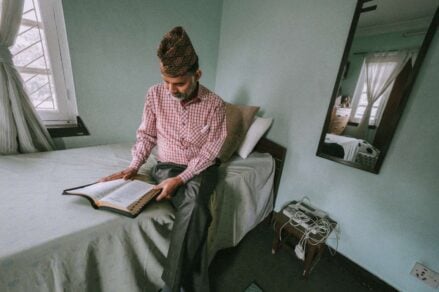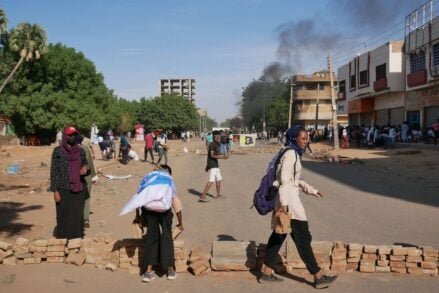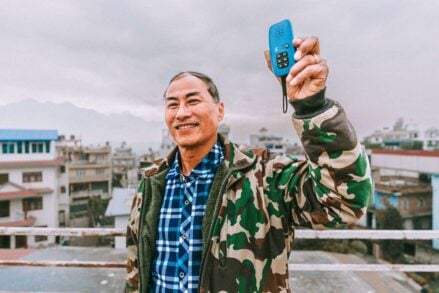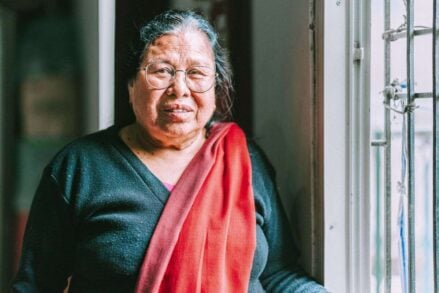The great banquet hall
It’s fitting that we should meet in a banquet hall, one of the few places large enough for us to come together. Walking into the wedding hall was surreal. There are beautiful colors of purple, gold, and magenta curtains that cover the walls, elegant lights streaming from the ceiling, and round tables with ornate fabric and high-backed chairs. And around each table, for rows and rows, there are families. It’s hard to explain the the contrast of this elaborate wedding hall and the smiling families, all of them in bonded slavery, who sit patiently at the tables. These Christian families represent the lowest income earners in Pakistan. But even for those living within that reality, joy is still present. It wasn’t like walking into a funeral. There were cheers, laughter, kids running around. The hall was full of energy and life.
It reminded me of the parable of the banquet in Luke 14. In it, Jesus tells the story of a man who holds a great dinner banquet and invites all his friends, but they all refuse with petty excuses. So, the man, now frustrated with the shame of rejection, has his servants invite anyone they can find, those living in poverty, the needy, the blind—just to fill the seats. This is a powerful picture of how the Kingdom works. God’s love extends to those who are forgotten, on the margins—those who seemingly have nothing to offer. In this, God shows that those often discarded by the world still have incredible value in the Kingdom.
Society would look at these families and see low caste faces, rejected and needy, but God sees them, like he sees you and me, as sons and daughters.



